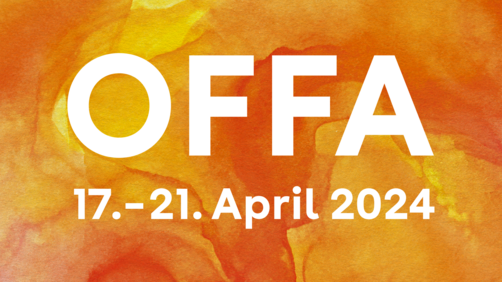Events - 29.05.2018 - 00:00
St.Gallen Symposium Public Forum
For the first time, after the St.Gallen Symposium a public forum took place, to which all interested parties were invited in order to gain an insight into the findings of the cross-generational dialogue. The discussion focused on the question of how our world of work will change in the future.

29 May 2018. In his welcome speech, HSG President Thomas Bieger mentioned that the St.Gallen Symposium has always endeavoured to have an impact on the outside world. Not least for this reason, public lectures took place in the HSG library again this year, in the course of the two-day dialogue, the President explained. He went on to say that, with the first public forum in Einstein St.Gallen, the part of the Symposium that is accessible to all interested parties has now been extended. On 3 and 4 May, 2018, at the HSG, decision-makers from business, politics, science and society discussed a topic of importance for the future. The question of how digitisation and robotics are changing our world of work, and hence our society, is what will be on everyone's mind, Thomas Bieger declared, adding that: "the biggest challenge will be how we shape the transition period."
Findings from the dialogue
The two HSG professors, Patrick Emmenegger (Political Sciences) and Peter Hettich (Public Business Law), compiled their findings from the 48th St.Gallen Symposium in a summary. Work will not run out, but we must help those who find themselves under pressure as a result of the changes, explained Patrick Emmenegger. He advised that Switzerland would be wise to continue to focus on dual vocational training and keep the "brightest brains" in the country, in order to be equipped for the future, he stipulated that more flexibility is required from everyone. But this is easier for individuals to achieve if society has a stable, social safety net which can be relied on in an emergency, the Professor of Political Science continued. In his opinion, there are grounds for optimism despite the changes. He reasoned that the past has also shown that new technologies have opened up more opportunities than risks. The Professor concluded that in order to be able to seize these opportunities, it is now necessary to work in a future-oriented way, on every level, and focus on innovations.
Progress cannot be stopped
When faced with these profound changes, there are a number of pessimists who preach that it is the end of the world, explained Peter Hettich. He treats the prophecies of these people with great scepticism. Progress cannot be stopped, he maintained: "our ability to adapt and innovate has allowed us to get to where we are today. The experiences of previous technological revolutions have shown this." He went on to state that, for the future to happen, if nothing else you need politicians who show the will to shape change and permit groundbreaking innovations.
After the two presentations, Marianne Janik, General Manager of Microsoft Switzerland, Katrin Eggenberger, Chief of Staff at the World Economic Forum, Hermann Arnold, founder of Haufe-umantis AG, and Dominik Bilgeri, Ph.D. student and researcher at ETH Zurich, took to the podium. Under the direction of moderator Urs Gredig, Editor-in-Chief of CNN Money Switzerland, they discussed various issues on the topic of "Beyond the end of work".
The topic affects companies
Digitisation and robotics have a significant effect on her as well as the company, Marianne Janik stressed. Microsoft is already lacking IT experts and specialists in cyber security, she claimed. From her perspective, as an employer of the future, it is more important than ever to invest in a good corporate culture. She is convinced that new technologies will make the world more colourful. However, she maintained that it is imperative that the dialogue happens today, in order to grasp the rules of the game in relation to artificial intelligence and robotics in good time.
Hermann Arnold picked up on Patrick Emmenegger's theory, which states that there must be a safety net for all those who are put under pressure by changes in the world of work. He believes in the ingenuity of people and is therefore not in favour of relieving most employees of the responsibility of finding themselves a new job in a changed world of work. Especially in a democracy, the principle is that people can make their own decisions, he argued. However, he advocated the promotion of equal opportunities and that the richest 10 percent in the country should look after the 10 percent who lost out the most, who have always existed.
Katrin Eggenberger is convinced that new technologies are changing the world of work at an unprecedented rate. Dialogue between people will always be needed, she explained. The future requires young, motivated people, Dominik Bilgeri pointed out. She went further, stating that to be committed to innovation, employers have to provide an appropriate environment. From her perspective, there needs to be a more balanced give and take between employees and employers.
More articles from the same category
Discover our special topics











